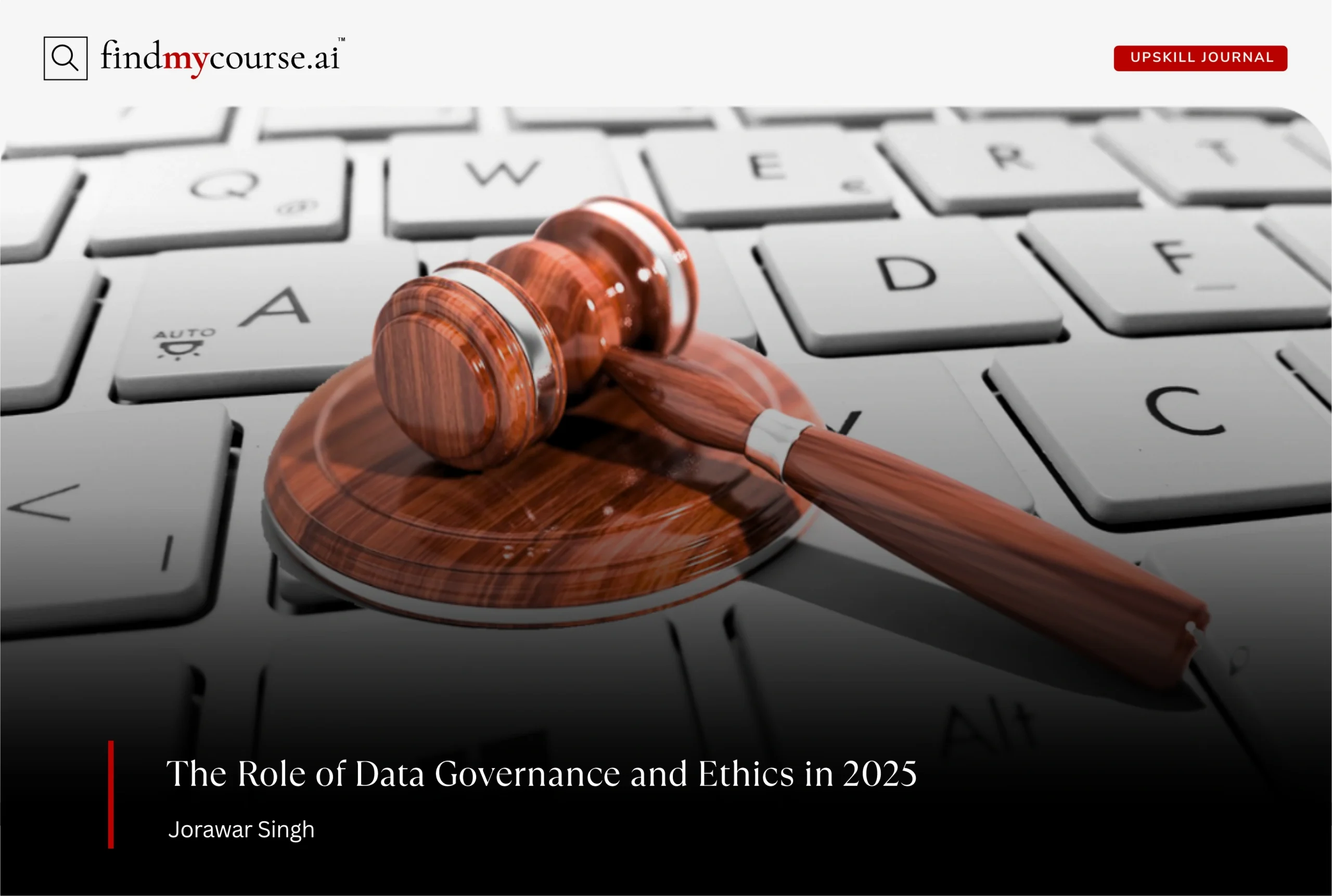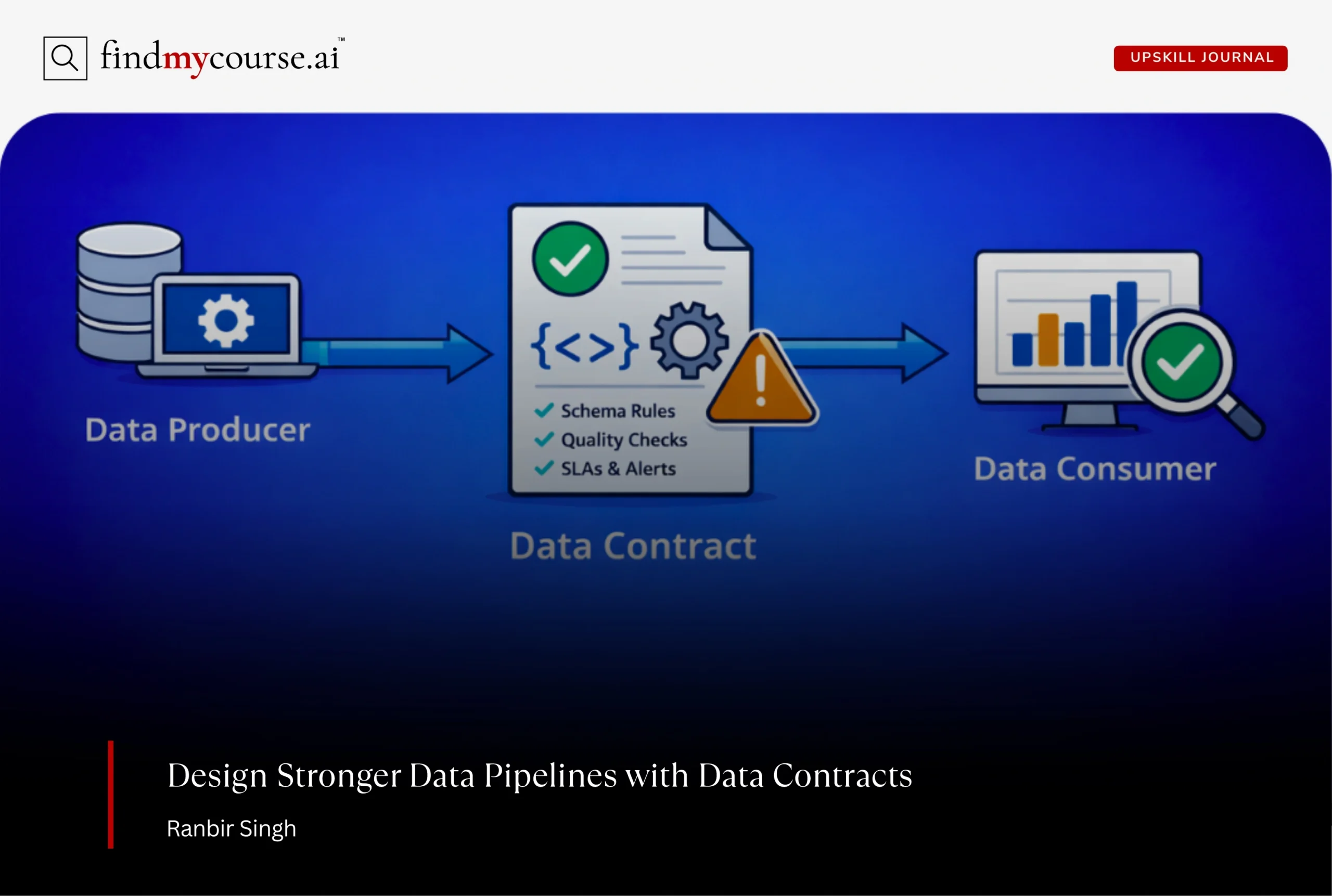In 2026, data drives nearly every decision, from business strategy to customer experiences. But as organizations collect more data than ever, handling it responsibly has become a defining factor for success. Data governance and ethics are no longer just best practices—they are essential frameworks that ensure data is accurate, secure, and used fairly.
This guide explains what data governance and ethics mean, why they matter for organizations and professionals, and how they can be applied to drive trust, compliance, and innovation in today’s digital landscape. By learning these principles, professionals can confidently upskill to help their organizations innovate responsibly while maintaining trust and compliance.
What Is Data Ethics?
Data ethics refers to the moral principles that guide how data is collected, stored, shared, and used. It emphasizes transparency, fairness, accountability, and respect for privacy. Essentially, data ethics asks organizations to consider the societal and human impact of their data decisions. For instance, when deploying artificial intelligence, data ethics ensures that algorithms do not propagate bias or discriminate against certain groups. In addition, it safeguards personal data and strengthens public trust in technology.
Key elements of data ethics include:
- Privacy and Consent: Ensuring data subjects are informed and agree to how their data is used.
- Transparency: Being clear about data collection methods, processing, and usage.
- Fairness: Avoiding bias and discrimination in data-driven decisions.
- Accountability: Holding organizations responsible for ethical lapses or misuse of data.
Understanding what is data ethics is crucial not only for compliance but also for cultivating trust with customers, employees, and stakeholders.
What Is Data Governance?
Data governance is the framework of policies, processes, and standards that manage the accessibility, quality, and security of data within an organization. While data ethics deals with “should we do this?” questions, data governance focuses on “how do we do this correctly?”
A robust data governance framework ensures:
- Data Accuracy: Information is reliable and error-free.
- Compliance: Alignment with regulations such as privacy laws and industry standards.
- Security: Protection from unauthorized access or breaches.
- Consistency: Uniform management of data across departments.
Organizations use a variety of data governance tools to automate and enforce policies, monitor data quality, and track compliance. These tools allow teams to maintain control over vast datasets while reducing risk. Additionally, data governance frameworks help organizations comply with global regulations such as GDPR in Europe and CCPA in California by standardizing data handling, access controls, and breach response. Ethical considerations complement these frameworks, ensuring that AI systems meet not only legal requirements, like those outlined in the AI Act 2026, but also societal expectations for fairness, transparency, and accountability.
Why Data Governance and Ethics Are Essential Today
In today’s digital era, data governance and ethics have evolved from optional practices to essential pillars of modern business. Organizations that neglect these principles risk regulatory penalties, reputational damage, and operational inefficiencies.
- Building Trust with Customers and Stakeholders: Trust is the foundation of any successful organization. Consumers increasingly demand transparency about how their data is collected, stored, and used. By integrating strong data governance with ethical standards, organizations demonstrate accountability and respect for privacy, strengthening customer confidence and loyalty. Investors and partners are also more likely to engage with companies that prioritize responsible data management, enhancing credibility across the ecosystem.
- Ensuring Compliance in a Complex Regulatory Landscape: Data protection and AI regulations are becoming stricter worldwide. Governance frameworks provide structured processes for compliance, while ethics ensures these practices align with societal expectations. Together, they help organizations avoid legal penalties and maintain a strong reputation in a highly regulated environment.
- Mitigating Risks and Protecting Sensitive Information: Data breaches, leaks, and misuse can cause financial, legal, and reputational damage. Effective governance, supported by ethical oversight, ensures sensitive information is handled securely and responsibly, with monitoring systems to prevent unauthorized access and fair decision-making in data use.
- Supporting Innovation and Strategic Decisions: Accurate, well-governed, and ethically managed data empowers organizations to make faster, smarter decisions. Ethical considerations prevent bias, ensuring strategies are inclusive and sustainable, making governance and ethics enablers of innovation rather than constraints.
- Shaping Organizational Culture and Talent Development: Embedding governance and ethics into workplace culture cultivates responsibility, transparency, and collaboration. Employees trained in these principles can handle data responsibly, while upskilling in these areas enhances career prospects and prepares individuals to lead in a world where ethical data practices are increasingly valued.
Trends in Data Ethics and Governance in 2026
As data continues to grow in volume and complexity, organizations are evolving how they govern and use it. Emerging trends reflect the need for real-time oversight, ethical AI, integrated compliance, and building trust.
- Real-Time Data Governance:
With the rise of IoT and streaming data, organizations are shifting from static policies to real-time monitoring and enforcement. This allows faster decision-making while maintaining compliance and control over data. - AI and Algorithmic Ethics:
As AI drives critical business and societal decisions, ethical principles like transparency, fairness, and accountability are becoming core to governance frameworks. Organizations are increasingly implementing standards to continuously audit AI systems and prevent bias or misuse. - Integrated Compliance:
Global regulations around data and AI are becoming stricter. Companies are designing governance frameworks that combine compliance with ethical standards, ensuring they meet both legal requirements and societal expectations simultaneously. - Emphasis on Trust:
Trust has emerged as a key differentiator in the digital economy. Organizations that pair strong governance with ethical data practices are more likely to earn long-term customer loyalty and stakeholder confidence, reinforcing their reputation and competitive advantage.
Conclusion
As we navigate 2026’s data-driven landscape, the integration of data governance and ethics has moved from a compliance requirement to a strategic advantage. Proper governance ensures data accuracy, security, and compliance, while ethical practices build trust, fairness, and transparency. Together, they enable organizations to make responsible, informed decisions, protect sensitive information, and foster a culture of accountability. Companies that prioritize these principles not only minimize risks but also gain a competitive edge through sustainable innovation. By embracing ethical, well-governed data today, organizations position themselves to lead responsibly, inspire confidence, and set the standard for success in the rapidly evolving digital landscape.


